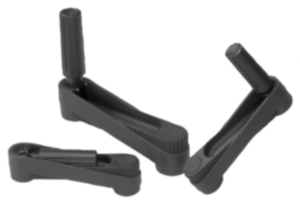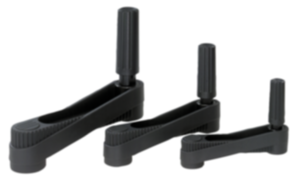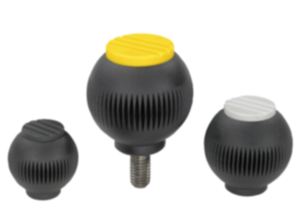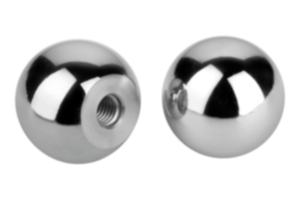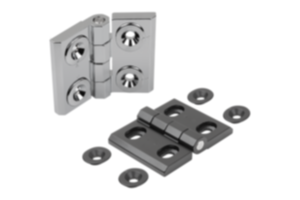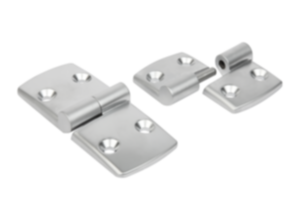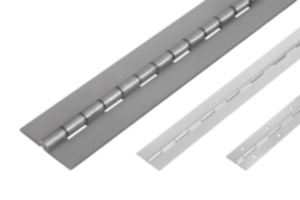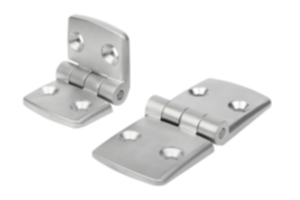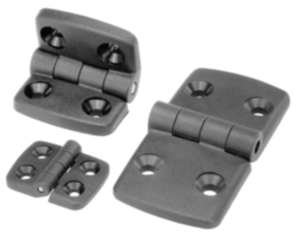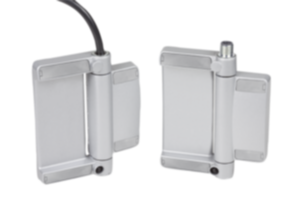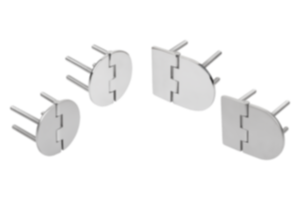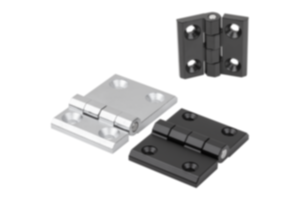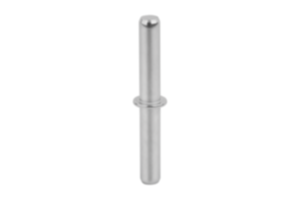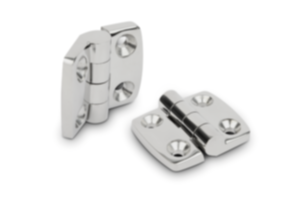Wheels, castors
The product variety of wheels and castors by KIPP
When it comes to moving heavy loads from one place to another, heavy-duty castors are the perfect solution. These sturdy wheel types are frequently used in industry, be it on assembly units or on transport vehicles. They are also indispensable in logistics and for industrial trucks.
At KIPP, we offer an impressive range of wheels and castors designed for precise manoeuvrability and a wide range of applications. Various types of our castors are available, including swivel castors, and fixed castors also for heavy loads, to meet the individual requirements of your projects.
What types of castors are there?
Castors for light loads
What are heavy-duty castors?
What are the advantages?
How much do castors cost?
Which material is best?
How are heavy-duty castors installed?
How is the permissible load calculated?
What types of castors are there?
There are two main types of castors:
- swivel castors
- fixed castors
Both types of castor feature certain properties, such as temperature resistance, are made from different materials and are available in different sizes and load capacities.
The decisive difference between swivel castors and fixed castors lies in their manoeuvrability.
Swivel castors
swivel left and right and align themselves according to the direction of movement. They are the castors used to steer the vehicle they are attached to. This makes them ideal for precise manoeuvring in transport logistics. However, they are slower and less suitable for moving loads in a straight line.
Fixed castors
on the other hand, cannot be swivelled and only move in one direction. As a result, they offer a high level of stability when transporting heavy loads. Fixed castors are the first choice for transport over linear sections, as they ensure stability and speed.
Product examples for swivel and fixed castors:
- Castors made of steel plate up to 900 kg permissible load per castor
- Welded steel castors with a permissible load of 1350 kg
- Standard type castors with solid rubber tyres
- Steel plate swivel and fixed castors for the hygienic sector
In most applications, a combination of both swivel and fixed castor is recommended.
The combination of both castor types ensures high stability on straight stretches and simultaneously enables easy manoeuvring in tight bends, all with minimum effort.
A configuration with four swivel castors, on the other hand, facilitates manoeuvring in extremely confined spaces, such as in office corridors or around many work stations.
Other castor and wheel types in the KIPP range
In addition to the wheels and castors mentioned above, the KIPP range also includes castors for lighter loads and individual rollers to replace broken ones.
The range includes lightweight castors and heavy-duty castors. Electrically conductive equipment swivel and fixed castors are available with permitted max. weight of up to 30 kg per castor. Even the standard type steel plate castors can take weights of up to 50 kg per castor.
The individual wheels that are available for wheel replacement are solid rubber tyres, polyamide wheels or guide rollers.
Elevating castors with integrated locking foot made from break-proof polyamide with a permissible load of 500 kg per castor are also part of the product family "wheels and castors".
In our range of wheels and castors for industrial applications, you are sure to find the perfect one for you!
What are heavy-duty castors?
Heavy-duty castors are a special type of castor developed for transporting heavy loads. They are indispensable in trade and industry when it comes to transporting heavy loads safely and efficiently. Heavy-duty castors are characterised by their impressive load-bearing capacity and are available in different load classes. They are extremely versatile and can be used both indoors and outdoors.
The KIPP range includes heavy-duty castors that can transport weights between 150 kg and 1350 kg per castor. The different permissible loads are therefore classed light, medium and heavy.
The heavy-duty castor, which is designed for loads up to 1350 kg, is available as a swivel castor and fixed castor in various styles here.
Our wide range allows you to select the appropriate swivel and fixed castors for your specific application.
Why should you use heavy-duty castors?
The use of heavy-duty castors offers numerous advantages, especially when it comes to transporting heavy goods. They ensure even weight distribution, which increases the safety and stability of the items being transported.
They also make it much easier to move large and heavy objects and reduce the strain on your staff. To make the right choice, you should consider a number of user issues, such as the surface on, and the environment in which the heavy-duty castors will be used. This leads us directly to the selection of the best material.
What is the best material for wheels and castors?
The choice of the best material for castors depends on various factors, including ambient temperature, hygiene requirements and, above all, the floor surface. KIPP offers a wide range of materials, from stainless steel to heat-resistant plastics. These materials are suitable for use in various areas such as food processing, storage and industry, and ensure optimum performance and durability.
Swivel castors and fixed castors made of polyurethane, for example, are particularly suitable for uneven floors and outdoor use. Although they have a higher rolling resistance compared to rubber or PA6 castors, they compensate for it with their cushioning effect. Polyurethane castors remain resistant to wear even under prolonged use.
Solid rubber tyres are used in particular for heavy-duty applications where heavy loads often have to be moved over uneven ground. Such tyres are typically used in agriculture, for transporting bulky components, on forklifts or road sweepers. These tyres are characterised by high driving comfort, are gentle on the floor whilst only causing low noise pollution at the same time.
In addition to polyurethane castors, our range also includes swivel and fixed castors with PA6 as well as extrathane (Shore hardness 92) treads .
Choosing the right material is therefore crucial to ensure optimum performance and durability of your castors.
How much do castors cost?
The price of castors depends on design, load capacity and material from which the castor is made. Castors with a permissible load of 100 kg, with a sheet steel housing and solid rubber wheels but without brake system are available from €19.
However, if you are looking for a heavy-duty castor with a much higher load capacity and therefore made of a different material, the cost can be as high as €560.
How are heavy-duty castors installed?
The installation of castors can vary depending on the application. You can choose between using two or four castors, depending on the required stability, load capacity and manoeuvrability.
The KIPP swivel and fixed castors are mounted using screws. A combination of swivel and fixed castors enables precise manoeuvrability and easy directional changes.
Calculating the permissible load for castors
Ask yourself"How high must the load-bearing capacity of my castors be?"“?
That is a very good question! Choosing the appropriate castors depends not least on their permissible load. After all, you want to ensure that the transport of even the heaviest of your goods runs smoothly. The required load capacity per roller can be determined by a simple calculation.
It corresponds to the total weight of the appliance and the load being transported, divided by the number of castors (as a rule, four). However, to ensure that the remaining castors can easily support the weight in the event of an uneven floor, we recommend dividing the maximum weight by three instead of four.
Permissible load per castor = (appliance weight + additional load) / 3
For information on permissible loads for a castor see product details. This value applies per castor and must be multiplied by 3 for the total load capacity. The result of the calculation is the total load capacity of the chassis.



